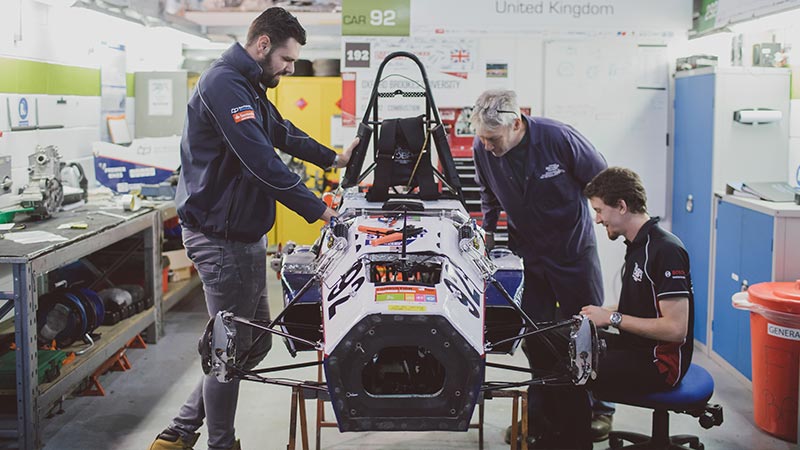Research in the School of Engineering, Computing, and Mathematics is organised into cross-cutting, interdisciplinary themes. Research is supported by the UK Research Councils and the European Commission, industry and charitable foundations and we have an excellent reputation for knowledge transfer.
School of Engineering, Computing, and Mathematics research Institutes, Centres and Groups
Institutes
Centres
- Dependable Systems Engineering Research Centre (DSERC)
- Future of Transport
- Joining Technology Research Centre (JTRC)
- Sustainable Vehicle Engineering Centre (SVEC)
Groups
- Advanced Reliable Computer Systems Group (ARCoS)
- Applied Software Engineering and Data Analytics Group (ASEDA)
- Artificial Intelligence and Robotics Group (AIR)
- Autonomous Driving and Intelligent Transport
- Cloud Computing and Cybersecurity Group (CCC)
- Cycle Mobility Group
- Electronics and Instrumentation Group
- Engine Modelling Team (EMT)
- High Voltage and Energy Storage (HVES)
- Mechanics, Materials and Design (MMD)
- Modelling, Risk and Design for Reliability
- Ultrasonic Cavitation Processing Lab (CAV-iT)
- Visual Artificial Intelligence Laboratory (VAIL)


